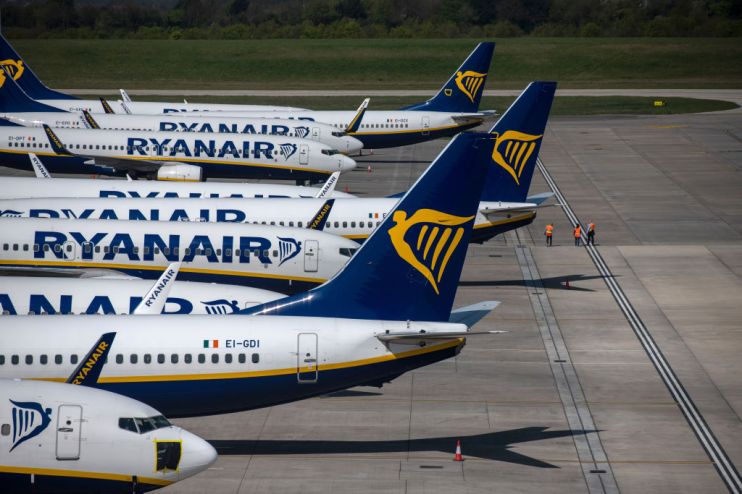Ryanair’s profits skyrocket to eye-watering £184.9m as low-cost airline cashes in on strong dollar and Asian tourists

Ryanair has posted its largest third quarter profit after tax for the winter quarter as a boom in demand helped it soar past pre-Covid levels.
In the three months ending 31 December, the Dublin-based carrier reported a pre-tax profit of €211m (£184.9m), up from last year’s loss of €96m.
This was also up on the €88m profit reported in the third quarter of its 2020 financial year. Ryanair added that the average fare paid was 14 per cent higher during the same period.
Revenue surged 57 per cent to €2.31bn after passenger levels topped 38.4 million with a load factor of 93 per cent.
In a statement the airline said: “Ryanair secured strong market share gains in key EU markets as we operated 112 per cent of our pre-Covid capacity during the first nine months of FY23.”
Chief executive Michael O’Leary told investors earlier today the carrier is better equipped for growth compared to both low-cost rivals such as Easyjet and Wizz Air as well as legacy airlines.
“There’s been an extraordinary widening of the unit cost gap between us and every other airline in Europe,” O’Leary said.
According to Ryanair calculations, unit costs have gone down to €30 per seat while those of competitors have surged between 42 per cent of Easyjet and IAG’s 60 per cent.
“It’s one of the reasons why we are continuing to grow so strongly but also why profitability has rebounded strongly this year,” he continued.
O’Leary also added Ryanair was expecting a “robust demand” for Easter and the summer as more tourists returned to Europe from above due to a strong dollar and China’s border reopening.
“At the moment our bookings are running at or above pre-Covid levels for some of the peak months of the summer,” the chief executive continued.
Commenting on Flybe’s recent collapse, O’Leary said it wasn’t going to make a significant difference to Ryanair as the failed company “is so small.”
Looking ahead, Ryanair has maintained its revised guidance of a full-year profit of between €1.32bn and €1.42bn – up from an estimate of 1bn to €1.2bn.
The results come after rival Easyjet and Wizz Air posted their quarterly results, which showed that low-cost airlines appeared to be equipped to weather a macroeconomic environment plagued by recession fears and higher costs of living.